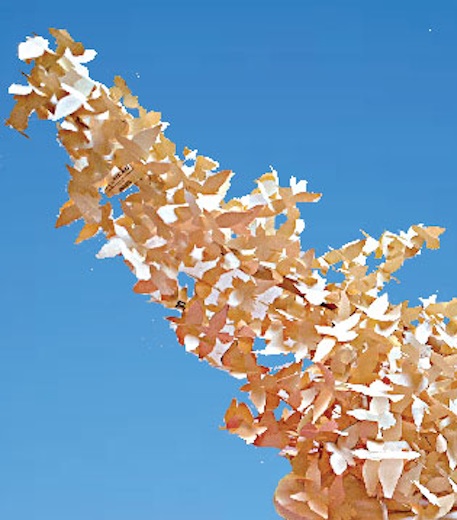Some values are timeless, but how we express them can change over time. This week’s Torah portion (Tzav) uplifts this idea through the example of how we handle shame and guilt.
What Torah calls us to do – uplift shame and guilt – often isn’t our first impulse. Torah expresses this truth with “sacrifices,” the ancient currency of giving offerings to God in contexts ranging from gratitude to hope to penance. The purpose was to feel closer to the holy – which is what “sacrifice” literally means in both Latin (sacrificare) and Hebrew (korban).
That’s why this week’s Torah portion features sacrifices. Ancient sacrifices had common features. One gave them freely from choice possessions. One placed them on a fire always kept burning so it’d be accessible immediately (Lev. 6:5-6). Sacrifices were transformed into heat and light, and their smoke rose upward (Lev. 6:2). The sacrifice was even called an olah – “the thing that goes up.” Sacrifices for “sin” or “shame” (Lev. 6:17), and “guilt” (Lev. 7:1-2), were uplifted just this way.
Fast forward to today. When we feel shame or guilt, how often is our first impulse to ignore it rather than act immediately? How often is our next impulse to suppress it, to shove it down, rather than lift it up? How often do we diminish it rather than offer it our choice commodities of attention, time and care? How often do we keep it in the dark rather than turn it into light?
Suddenly the ancient symbolism of sacrifice, expressed in modern language, can make sense in a whole new way. What Torah asks us to do, when we feel shame and guilt, is to turn upside down the natural impulse to ignore, delay, suppress, diminish and darken. Understood this way, shame and guilt become calls to attention, immediacy, uplift and light.
But how? No offense, Torah, but burning a chicken won’t do it for me.
Thankfully, today we have other tools to draw close to the holy. We can start with speech, calling things what they are. We can speak them to others, so we’re not alone. We can make tangible amends to people we’ve wronged. We can make it easier for others to make tangible amends. We can give to charity. We can volunteer. We can pray. We can love.
All of these, each in their own way, can draw us closer to the holy. In these ways, shame and guilt can become holy updrafts. Find yours and make them real, with amazement that ancient ways we long ago outgrew still offer hands-on wisdom to make our lives a blessing.
———————————-
Rabbi David Evan Markus




